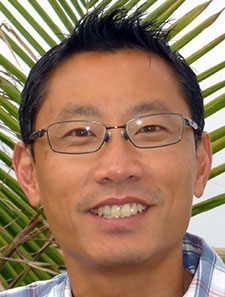MOUD and Behavioral Health Interventions after Nonfatal Drug Overdose
Clinical question: How often are medications for opioid use disorder (MOUD), naloxone, and behavioral health services prescribed after a nonfatal drug overdose, and what is the association between receipt of these interventions and subsequent fatal drug overdose?
Background: Since the COVID-19 pandemic, the U.S. has faced an opioid use epidemic and a substantial increase in drug overdose deaths, with more than 107,000 lives being lost to drug overdose in 2022. Previous studies have shown that prior nonfatal drug overdose is a risk factor for subsequent nonfatal and fatal drug overdose and that MOUD, naloxone, and behavioral health services reduce the risks of overdose. However, these studies were done in smaller populations, prior to the COVID-19 pandemic, and before illicitly manufactured fentanyl became more prevalent. This study looked at a national population and the association between receipt of MOUD, naloxone, and behavioral health services with the risk of subsequent fatal drug overdose.
Study design: Longitudinal cohort study
Setting: National cohort of Medicare fee-for-service beneficiaries
Synopsis: 136,762 Medicare beneficiaries aged 18 or older experienced an index nonfatal drug overdose in 2020. In the 12 months after experiencing a nonfatal drug overdose, 17.4% of these beneficiaries experienced a subsequent nonfatal drug overdose, and 1.0% died of a fatal drug overdose. Only 4.1% of individuals received MOUD (methadone or buprenorphine) and 6.2% filled a naloxone prescription in the 12 months after the index overdose. Filling a naloxone prescription (adjusted odds ratio [AOR], 0.70; 95% CI, 0.56 to 0.89), receipt of methadone (AOR, 0.98; 95% CI, 0.98 to 0.99) or buprenorphine (AOR, 0.9; 95% CI, 0.98 to 0.99), and receiving behavioral health services (AOR, 0.25; 95% CI, 0.22 to 0.28) were associated with a statistically significant reduction in risk of subsequent fatal drug overdose.
Limitations of this study are that the population consisted of Medicare fee-for-service beneficiaries and might not be generalizable to other populations. Further, the study relied on ICD-10-CM codes and billing or claims data, which may underestimate nonfatal overdoses or medications not coded in the claims data.
Bottom line: Despite the association of MOUD, naloxone, and behavioral health services with a reduced risk of subsequent fatal drug overdose, only a small percentage of Medicare beneficiaries experiencing a nonfatal drug overdose received these interventions. Given their effectiveness, hospitalists, emergency department physicians, and health systems should improve the provision of these overdose-prevention strategies.
Citation: Jones CM, et al. Overdose, behavioral health services, and medications for opioid use disorder after a nonfatal overdose. JAMA Intern Med. 2024;184(8):954-962. doi:10.1001/jamainternmed.2024.1733.
 Dr. Huang is a clinical professor of medicine in the division of hospital medicine and a physician advisor at the University of California in San Diego.
Dr. Huang is a clinical professor of medicine in the division of hospital medicine and a physician advisor at the University of California in San Diego.